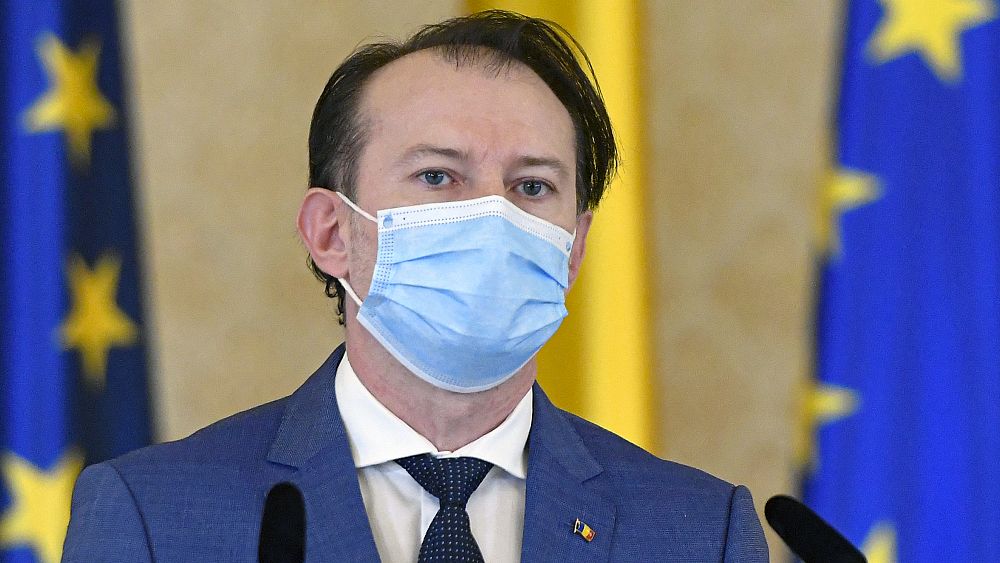
Romania’s government has been toppled after a vote of no confidence in Prime Minister Florin Citu was passed with a huge majority in parliament.
The motion was passed by 281 votes, far more than the 234 required, with Citu’s National Liberal Party (PNL) MPs boycotting the vote.
It was lodged by the Social Democratic Party (PSD) after an earlier no-confidence motion by the far-right Alliance for the Union of Romanians (AUR) was blocked.
The two parties were supported by the PNL’s former coalition partners, the centrist USR Plus, which broke with the government over the sacking of Justice Minister Stelian Ion, on September 2.
Citu, 49, was appointed less than a year ago but has come under fire for the handling of the COVID-19 crisis, with Romania currently the second-worst vaccinated country in Europe.
Meanwhile, the pandemic has exposed serious deficiencies in the country’s healthcare system, with three deadly hospital fires in the last year alone.
Citu will remain as interim leader for 45 days while President Klaus Iohannis, a PNL member and Citu’s main political ally, consults with representatives of all Romania’s political parties on a replacement.
He can offer a new candidate for the role to parliament twice but if both are rejected Romania would face new elections. Iohannis is allowed to nominate Citu, despite the no confidence vote, for the role again, but would likely face renewed hostility from the united opposition.
In a statement, USR Plus said that Iohannis was obliged to appoint a prime minister from the PSD – not from the PNL – that could form a government in coalition with its own MPs in parliament.
“Florin Cîtu has been dismissed for all the reforms that have been blocked in recent months, for the failure of the vaccination campaign, for the use of money and public functions to buy votes at the PNL congress,” it said in a statement published on its Facebook page.
But despite the comments, MPs from the three biggest parties – the PNL, PSD and USR Plus – may be open to a compromise as few want to face fresh elections with Romania in political turmoil and trust in the government at an all-time low.
“Neither PSD nor PNL, and not even USR wish to put the shoulder into campaigning during an already problematic fourth pandemic wave,” said Radu Magdin, a political analyst.
Magdin suggested that more likely scenarios could be a right-wing coalition under an alternate leader from the PNL with key positions given to USR Plus, or a PNL-PSD coalition with a PSD prime minister.
There could even be an agreement that Citu return as prime minister so the government can function until the next parliamentary session in spring 2021 and avoid new elections.
The only political force in Romania’s parliament that would favour new elections are the radical AUR, which capitalised on widespread anger and discontent with the political class in the 2020 election.
It currently has 40 seats in parliament and George Simion, its president of the AUR, told Euronews on Monday that he would expect a far bigger share of the vote if new elections were held.
Modelled on Poland’s Law and Justice (PiS), the AUR is a nationalist party that favours a union with Moldova, opposes European green energy and climate goals and is against increasing LGBT rights.
Citu is also facing opposition from within the PNL from supporters of Romania’s former prime minister, Ludovic Orban, who stood down after the 2020 elections.
